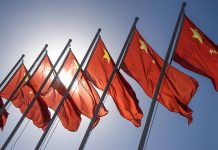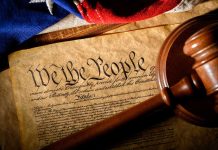
Canadian Prime Minister Justin Trudeau’s pledge to arrest Israeli Prime Minister Benjamin Netanyahu on Canadian soil has ignited a firestorm of controversy, challenging international law and diplomatic norms.
At a Glance
- Trudeau vows to enforce ICC arrest warrant for Netanyahu if he enters Canada
- ICC issued warrants for Netanyahu and former Defense Minister Yoav Gallant
- U.S. firmly rejects ICC’s authority, stating the court lacks jurisdiction
- Netanyahu condemns charges as false and absurd, likening them to historical anti-Semitic trials
- Situation highlights growing divide between U.S. and traditional allies on Middle East policy
Trudeau’s Controversial Stance
In a move that has sent shockwaves through diplomatic circles, Canadian Prime Minister Justin Trudeau declared that he would arrest Israeli Prime Minister Benjamin Netanyahu if he were to set foot on Canadian soil. This statement comes in response to arrest warrants issued by the International Criminal Court (ICC) for Netanyahu and former Israeli Defense Minister Yoav Gallant, alleging war crimes and crimes against humanity related to the ongoing conflict in Gaza.
Trudeau’s position underscores Canada’s commitment to international law and the ICC, but it also raises serious questions about national sovereignty and the extent of the ICC’s influence. The Canadian leader reiterated his country’s support for a cease-fire and a two-state solution to the Israeli-Palestinian conflict, further complicating the already tense situation.
Trudeau says Canada would abide by ICC arrest warrants for Netanyahu, former defence minister – The Globe and Mail https://t.co/igZkhEZARI
— Robert Fife (@RobertFife) November 21, 2024
U.S. Rejects ICC Authority
In stark contrast to Canada’s stance, the United States has firmly rejected the ICC’s decision. White House press secretary Karine Jean-Pierre stated unequivocally that the ICC lacks jurisdiction over this matter. This position aligns with the longstanding U.S. policy of not recognizing the ICC’s authority, as neither the United States nor Israel are members of the court.
“No war is more just than the war Israel has been waging in Gaza” – Netanyahu
The divergence between the U.S. and Canadian positions highlights a growing rift among Western allies regarding Middle East policy. It also raises concerns about the potential overreach of international bodies into the affairs of sovereign nations, particularly in matters of national security and self-defense.
Netanyahu’s Defiant Response
Israeli Prime Minister Benjamin Netanyahu has vehemently condemned the ICC’s charges, describing them as false and absurd. In a powerful statement, Netanyahu likened the ICC’s decision to a modern-day Dreyfus trial, referring to the infamous 19th-century case of anti-Semitism in France.
“Israel will not recognize the validity of this decision” – Netanyahu
Netanyahu staunchly defended Israel’s actions, asserting that the country does not target civilians and has made significant efforts to facilitate the delivery of humanitarian aid to Gaza. He accused Hamas of looting these supplies, further complicating relief efforts. The Israeli leader’s resolute stance underscores the complex nature of the conflict and the challenges faced in balancing military operations with humanitarian concerns.
Implications for International Relations
The current situation poses significant challenges for international diplomacy and law. Trudeau’s declaration not only strains Canada’s relationship with Israel but also puts it at odds with its closest ally, the United States. This divergence in policy among Western nations could have far-reaching consequences for future cooperation on global issues and the handling of international conflicts.
Furthermore, the ICC’s decision to issue arrest warrants for sitting heads of state raises questions about diplomatic immunity and the potential for political motivations in international legal proceedings. As nations grapple with these complex issues, the world watches closely to see how this unprecedented situation will unfold and what it might mean for the future of international law and global governance.









